
THE VOICE OF INTERNATIONAL LITHUANIA
|
VilNews has its own Google archive! Type a word in the above search box to find any article.
You can also follow us on Facebook. We have two different pages. Click to open and join.
|
Featured black
Indulge yourself!
- Posted by - (0) Comment
Sometimes you just need to put the brakes on, slow down, relax, and indulge yourself... Medieval, modern, luxurious Lithuania is the place to do exactly that, trust us...
Treat yourself to a break at one of the many fine hotels in one of the cities or at a countryside inn – and enjoy the marvellous city or countryside life in a country named as ‘Europe’s best kept secret’ where you can experience its little known history side by side with dynamic, modern city life...
Enjoy elegant, international dining or traditional Lithuanian meals at a hotel, city restaurant or a country pub offering food for lazy lunches or dinners washed down with a glass of excellent wine or a more traditional beer...
- Bookmark :
- Digg
- del.icio.us
- Stumbleupon
- Redit it
- Posted by - (2) Comment
Advent 1945:
|
IN THE WORLD
“Across America, people crowd churches praying with gratitude for the peace in place, and reach out to wounded veterans, children who lost fathers, and neighbors who lost sons. Americans in big cities and small, participate in displays of the intrinsic love so indicative of the American spirit.” |
IN LITHUANIA
In 1944-45 Lithuanians were forced to realize that the bloody World War II had been replaced by a new war, the longest and bloodiest guerrilla war in modern European history, lasting from 1944 to at least 1953. |
Advent and Christmas of 1945 was over most of the world celebrated with a joy and delight almost never before seen. Young and old gathered in homes, on streets and in churches. An endless series of victory ceremonies took place in almost every corner of the world. With a deep sense of joy and gratitude all wanted each other warm, comfortable and relaxing Christmas holidays, knowing that the Nazi era was over and that the world now more than ever could look forward to a future of peace and prosperity. The war had finally released the grip, forgotten was the economic recession of the 1930s. Forgotten was also our Western World’s close friends and neighbours - the Baltic States.
On a small farm in northern Lithuania, in the outskirts of the village Šilagalis, Christmas 1945 is nearing. It is the 22nd of December, and the mother of the house feels very happy that her 21 year old son Povilas has finally come home to visit after having been away for many months.
He has come to change into dry clothes to keep him warm through the cold winter days waiting. His mother is infinitely happy to have her son home this one day, and she does everything she can to treat him with all the good food and drink their little farm can produce. You never know how long it will be till next time.
Povilas had joined a local partisan group earlier in 1945, and now spends all time in the North Lithuanian forests where the local "forest brothers" have established their hideouts. It is from these caches, usually at night, that they conduct their operations against military installations and forces of the Soviet Red Army and NKVD (the secret Soviet police that later changed name to KGB).
The Soviet occupation of Lithuania has lasted for more than a year now, but Povilas and other forest brothers still hope that their constant needle sticks can get Josef Stalin to pull his troops out of Lithuania and the other two Baltic countries.
Povilas is pleased to finally have got a day off, not least is he happy to eat real Christmas food and enjoy some Christmas cheer with the family. A small fly in the ointment is the fact that his father, little sister and little brother are not home.
Both the brother and the sister go to a boarding school in the nearest town, Panevežys, and his father had early in the morning that same day left for the town to bring them home for Christmas. But his mother is here, and when she and he, with arms around each other, go out in the barn to feed the animals, he sings with joy a song he so often has sung in the partisan camp in recent months:
"Dying young is difficult, but not for my country. For my country, Lithuania, I am ready to sacrifice my young life. "
His mother scolds him motherly strictly that he sings: "You know it is not proper to sing now that it's Advent," she says. Lithuania's Roman Catholic Church is strict when it comes to how to behave through the various festive times of the year, and his mother admonishes her son, therefore, while at the same time feeling proud and happy that he makes such an honourable service to the home country.
Back in the farmhouse they suddenly hear that the dog starts to bark. Through the window they see a group of soldiers approaching. The soldiers are still on some distance, so Povilas has time to hide in a small cellar room they have made beneath the living room floor, and the mother has time to cover the cellar hatch as best she can.
The cellar room has also previously been used to hide partisans, and both think this is a safe hiding place until the soldiers have left again.
The mother walks out into the yard to meet the soldiers from the Soviet Red Army. They ask if her son is home, and if he, in case, is alone. Without waiting for an answer, they storm into the house and begin to turn upside down on furniture and fixtures. Then they start shooting down to the floor to see if it can be cavities under the floorboards. It takes some time before they discover the cellar hatch, but as soon as they find and open it, they fire a machinegun volley into the hole. It does not take long before they pull the now perforated and lifeless body of Povilas out of the basement. The whole operation has taken them five hours, but they have found what they sought. One more young Lithuanian life has been lost in the desperate struggle against the overwhelming odds.
The distance from the farm to the road is over 500 meters, so the soldiers find a chain in the barn so they can tow the corpse of Povilas across the fields over to the military vehicle waiting. The mother is forced to follow, and soon they are on their way to the NKVD headquarters in Panevezys, where the body of Povilas is thrown out in the middle of the courtyard. His mother is brought to a prison cell in the basement.
Early next morning, Christmas Eve 1945, the mother is brutally dragged up from the wooden bench she has laid sleepless on during the night. Today, and every subsequent day for two weeks, she is brought up to ever-new interrogations, walking across the courtyard where the mutilated body of her son still is lying.
Christmas and New Year holiday season in 1945 passes with this terrible routine for a mother in tears and sorrow. Early in January, she is released and can finally go home and tell the family what has happened.
In thousands of homes around the world happy families walk around their Christmas trees. They celebrate that Jesus is born and the world's evil is overcome. 1946 is the beginning of the new and bright times for the human kind…
In northern Lithuania the parents of Povilas and other parents finally find out where the bodies of their killed young partisan sons have been dumped. Under the cover of dark nights in early January 1946, they manage to bring the bodies of their children home to secret burials in their hometown cemeteries.
Christmas 1945 is over. Most of the world looks forward to many good years of peace, freedom and economic growth. The Baltic States' ten-year guerrilla war against the occupiers has just begun.
* * *
The story of Povilas is real. It is based on a passage from the book "Lithuania's struggle for freedom" (Lithuanian Partisans' War Chronicles).
Povilas Peleckas was born on 24 January 1924 into a farming family in the village of Šilagalis in the Panevežys district north in Lithuania. He attended Šilagalis primary school. Later he helped his parents on the farm. In 1944 when the USSR invaded and occupied Lithuania for the second time (first time was in 1940), Povilas was due for conscription into the Red Army. He refused to go. When a local partisan unit was formed, led by Major Januškevičius, Povilas joined the fighters. In September 1945 many of the members of the unit were killed in battle, and another three were killed at the beginning of December. Those who remained alive determined to join a larger partisan unit. But fate was against them.
See also: https://vilnews.com/?p=1739
- Bookmark :
- Digg
- del.icio.us
- Stumbleupon
- Redit it
- Posted by - (0) Comment
Vilnius Jewish Library
to open 16 December!
http://vilniusjewishlibrary.org/
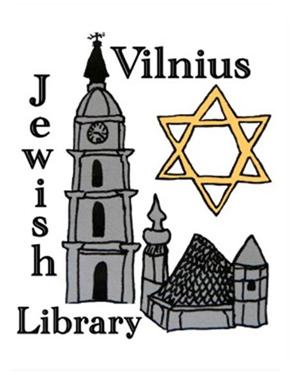
The Vilnius Jewish Library will be the first Jewish library in Lithuania since 1943, and we are happy to announce that the opening will take place 16 December. Location: Gedimino prospekto 24.
Wyman Brent is not like California Baptists in general. Several years ago he fell in love with Vilnius. His great passion in life is Jewish books - books written by or about Jews. Therefore, he has over the latest years bought more than 5.000 such books and taken them to Vilnius to open a Jewish library. Read below his own story about his ideals for a meaningful life.
Text: Wyman Brent
Using a wire brush to scrub a broken sink can help strengthen Jewish culture. Most people are not aware of this. Thus I found myself kneeling in a parking lot on a hot summer day with a hose and attempting to remove concrete dust from an old metal sink. To aid in the cleaning, the hose was turned on to wash away the dirt and dust. After a while, there was quite a stream of water running over the asphalt, down the street where it took a right at the intersection until it reached a storm drain. I only noticed this at the end when hot and tired, I was going to a café to get a cold drink.
What I did pay attention to while repeatedly running the brush and hose back and forth, up and down, left and right was the puddle created. The tiny pool of water gave off a big reflection of trains, trains going one direction or another, one city or another. Trains carrying passengers and trains carrying freight. That was now, but what about then. I had sat out many times over the past months on a balcony overlooking the parking lot from which one could sit and drink coffee or tea (your choice) and watch the trains roll by. It is an idyllic place to relax and read a good Jewish book…or maybe better to say a book by a Jew. I have a wide variety of reading material.
To read more, go our SECTION 12
- Bookmark :
- Digg
- del.icio.us
- Stumbleupon
- Redit it
- Posted by - (3) Comment
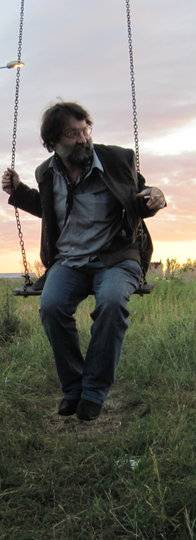 Thomas Jonas Chepaitis. |
A Heroic Lamentation for St. Bartholomew You know, there are two kinds of men, There is another kind, whose skin That’s here they tore off skin from you, But even in the greatest pain From then and on you point the way Lyrics: Thomas Jonas Chepaitis 2011 |
Išsiųsta Skaidrai ir Mariui Abr. birželio 12 d
:)) va, sukurpiau liūdnai heroišką dainelę
apie šv. Baltramiejų,
jei Skaidra angliškai dainuoja:
Gyvenu prie bažnyčios; pamaldžios kandys
Vietoj jonvabalių rodo kelią į Šiaip Sau
Skraido ten, grieždamos dantį
Ant peteliškių su kuriom jos glaudžiai
susijusios.
Jos kažkokios ypatingai tylios, lachūdros.
Ypatingai kažkokios bespalvės kaip salvės.
Jų neįdomumas net paslaptingas – už ką joms
Kilusioms iš drugelių, Fabras paskyrė tiek
puslapių?
Kas yra girdėjęs Kandies dainą?
Apie tai kad ji angliškai skamba Candy,
Apie tai kad jos norėjo būti spalvotomis,
Apie Putino slapyvardį, iš spintos išlindusį?
Na ir dar kad mėgsta vilną – ir aš mėgstu
Škotiškus pledus, močiučių megztinius.
Jos kartais linksmos, tos kandys, senovinei
stalo lempai
Peršvietus jų sparnelius ir likimus.
Kandys kanda lėtai ir dėl to jos kandys
Landys lenda įkyriai šitoj landynėje,
Mandys menda, ir aš su jomis mendėju.
Pandos panda, ir tuo aš gyvas.
Gyvenu prie bažnyčios turbūt ne šiaip sau,
Kandies įkastas, dėkoju
likimui. TČ. 2011
- Bookmark :
- Digg
- del.icio.us
- Stumbleupon
- Redit it
“Facing History: The Burden of 1941”
- Posted by - (4) Comment
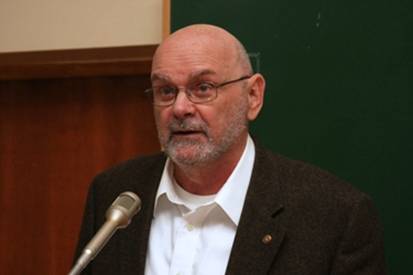
Dr. Saulius Suziedelis.
Scholar of Lithuania’s Holocaust history.
Photo: www.komisija.lt/lt/naujiena.php?id=1301995164
By Ellen Cassedy
“The only way for Lithuanians to lighten the difficult history of 1941 is to embrace it.”
The writer of these words, Dr. Saulius Suziedelis of Millersville, Pennsylvania, USA, will be honored in Vilnius on November 18, 2011, by the Lithuanian Ministry of Education and Science.
Also receiving awards will be Dr. Vytautas Cernius, a longtime professor of education at Temple University in Philadelphia, Pennsylvania, and Dr. Arvydas Kliore, a space scientist with NASA. The prizes for intellectual achievement are awarded annually to Lithuanians living abroad.
Dr. Suziedelis is a leading voice in the field of Holocaust scholarship. In his groundbreaking essay, “The Burden of 1941,” published in 2001 in Lituanus, the Lithuanian quarterly journal of arts and sciences, he encouraged Lithuanians to face the fact that more than 90 percent of the country’s 240,000 Jews were killed between 1941 and 1944, and that thousands of Lithuanians participated in the Holocaust.
“Recognizing a historic burden is not the same as accepting collective guilt,” Dr. Suziedelis cautions in his essay. “No honest person argues that Lithuanians are a nation of criminals, or that today's Lithuanians are responsible for what happened in 1941 (any more than contemporary Americans are responsible for slavery). But the legacies of such crimes, the historical burdens, remain.”
Born in Germany at the end of World War II to parents who came from Kaunas, Dr. Suziedelis grew up in Brockton, Massachusetts, speaking Lithuanian at home and attending a bilingual parochial school.
He acquired a Ph.D. in Russian and Eastern European history in 1977. In the 1980’s, while working at the U.S. Department of Justice, he came to recognize how little he knew about what had happened during World War II in Lithuania. “The rest of my country, except for the killers, knew even less,” he said. “I realized a lot of research had to be done.”
Delving into the vast archive documenting the 1941-1944 administrative structure of the Nazi occupation – at least a million pages, he estimates – he educated himself and began to publish widely in Lithuanian venues.
Stepping into this historical terrain was not easy. “You fight to not believe people of your culture committed horrible crimes.”
“With good reason,” he writes, “both Jews and Lithuanians consider themselves victims of the Second World War. There is no need to question that status.”
Yet, he goes on, “many Lithuanians and Jews remember this tragic history, especially the first weeks of the Nazi-Soviet war, from perspectives so opposed that sometimes it appears they cannot possibly be reflecting on the same events.”
More ethnic Lithuanians were killed after the war, during the pokaris, or postwar period, than during it. From 1945 to 1950, Dr. Suziedelis estimates, for an ethnic Lithuanian, the statistical chances of dying a violent death were about ten times higher than during the war.
The tug of war between two histories has led to a syndrome of “competing martyrologies,” Dr. Suziedelis notes, and this is unfortunate.
Soviet and Nazi crimes in Lithuania “didn’t occur on different planets,” he says. “There are striking similarities between the two systems. But that doesn’t mean they are equivalent. And you certainly can’t use one system’s crimes to excuse the atrocities of the other.”
Each history is unique, he stresses. “There are similarities and differences,” gray areas and difficult conundrums. What comparisons can be made between the Soviet and Nazi crimes? Lithuania’s 20th century history is complex, Dr. Suziedelis says. “You cannot fit it into a sound bite. I struggle with it.”
If Lithuanians are to “own their own history,” he believes, they must do three things:
- view Jewish history as part of Lithuanian history as a whole. “In the past,” Dr. Suzedelis says, “Jews wrote about Jews and Lithuanians wrote about Lithuanians.” Today, this is changing. An increasing number of ethnic Lithuanians are studying Jewish history.
- understand the Holocaust as the central event of the Nazi occupation. “The genocide of the Jews constitutes the greatest single atrocity in modern Lithuanian history.”
- assess Lithuanian participation in that event “without evasion, without squirming.”
Dr. Suziedelis is the author of numerous studies about Lithuanian history, and since 1998 has served on the International Commission for the Evaluation of the Crimes of the Nazi and Soviet Occupation Regimes in Lithuania. From 2006 to 2010 he chaired the Annual Conference on the Holocaust and Genocide at Millersville University in Pennsylvania, USA, where he is a professor emeritus.
In February, he participated in “No Simple Stories: Jewish-Lithuanian Relations between Coexistence and Violence,” an international conference sponsored by the Institute of Jewish Studies, University College London. In the spring, he delivered a series of lectures at Vytautas Magnus University in Kaunas on genocide and mass murder in the 20th century. He is currently at work on an essay about Polish-Lithuanian relations.
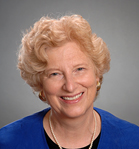
Ellen Cassedy traces her Jewish family roots to Rokiskis and Siauliai. Her book, We Are Here: Memories of the Lithuanian Holocaust, will be published in March of 2012. She lives in Washington, D.C. Visit her website at www.ellencassedy.com.
- Bookmark :
- Digg
- del.icio.us
- Stumbleupon
- Redit it
- Posted by - (1) Comment
Vilnius Jewish Library
to open 16 December!
http://vilniusjewishlibrary.org/

The Vilnius Jewish Library will be the first Jewish library in Lithuania since 1943, and we are happy to announce that the opening will take place 16 December. Location: Gedimino prospekto 24.
Wyman Brent is not like California Baptists in general. Several years ago he fell in love with Vilnius. His great passion in life is Jewish books - books written by or about Jews. Therefore, he has over the latest years bought more than 5.000 such books and taken them to Vilnius to open a Jewish library. Read below his own story about his ideals for a meaningful life.
Text: Wyman Brent
Using a wire brush to scrub a broken sink can help strengthen Jewish culture. Most people are not aware of this. Thus I found myself kneeling in a parking lot on a hot summer day with a hose and attempting to remove concrete dust from an old metal sink. To aid in the cleaning, the hose was turned on to wash away the dirt and dust. After a while, there was quite a stream of water running over the asphalt, down the street where it took a right at the intersection until it reached a storm drain. I only noticed this at the end when hot and tired, I was going to a café to get a cold drink.
What I did pay attention to while repeatedly running the brush and hose back and forth, up and down, left and right was the puddle created. The tiny pool of water gave off a big reflection of trains, trains going one direction or another, one city or another. Trains carrying passengers and trains carrying freight. That was now, but what about then. I had sat out many times over the past months on a balcony overlooking the parking lot from which one could sit and drink coffee or tea (your choice) and watch the trains roll by. It is an idyllic place to relax and read a good Jewish book…or maybe better to say a book by a Jew. I have a wide variety of reading material.
It never really occurred to me to think of how that rail line might have been used during the war. How many freight cars carrying ammunition, weapons, and other supplies did the Nazis send along that same line all those years ago? How many cattle cars were filled to beyond human capacity with people whose only “crime” was to be Jewish? It did occur to me this day as I looked at the puddle which I created as a result of working to improve Jewish life in Vilna. The thought brought tears to my eyes, and I was glad to be alone at that moment.
So how exactly does an old sink going from dirt and dust encrusted to somewhat less filthy improve things Jewish? The next day was to be the second event to promote the Vilnius Jewish Library. The first event had been a big success with members of the Jewish community, members of Parliament, and various Ambassadors in attendance. There was a presentation of books and other materials which would be in the future library when its doors were open to the public. The second event would present similar material to the previous. So how to make it different? I wrote to a friend in California asking that very question. She suggested a dining table covered with books, shelves lined with food and books, and a sink filled with…yes books.
|
|
The idea was to show that Jewish life, thought, and culture was as much a part of Lithuania as the food which we consume. One can no more avoid the influence of all things Jewish here than one can avoid finding beetroot soup in any restaurant which serves traditional Lithuanian food. Both are so much part of the fabric of society. |
The idea was to show that Jewish life, thought, and culture was as much a part of Lithuania as the food which we consume. One can no more avoid the influence of all things Jewish here than one can avoid finding beetroot soup in any restaurant which serves traditional Lithuanian food. Both are so much part of the fabric of society. That brings me back to the not so raging river of water running down the street. Cars were driving through the water and pedestrians were stepping over it. Nobody gave much thought if any to where the water came from or the reason for it to be there.
A wire brush and a green garden hose gave new life to an old sink. That old sink, still very much rusted and with broken bits and pieces, did its part to help get people in Vilna to once again give serious thought to the impact which all things Jewish have had on this country. The concrete dust which coated the sink had become hardened over time. The constant moisture in the air here made sure of that. Can’t the same be said of many people’s attitudes? They forget something because it is out of sight and out of mind. The thing sits neglected in a dark corner.
That old sink received a second life. Jewish life in Lithuania is doing the same. The recent opening of the Litvak Studies Institute, and the soon to open Vilnius Jewish Library is proof of that. The Lithuanian government is providing space, funding, furniture, and staffing. What they are not providing is more material for the library. That depends on those around the world who truly care about Jewish culture. Jewish life does not begin and end only within the borders of the USA and Israel. Things will never be as they were in the Jerusalem of Lithuania. However, things can and will be better than they are now.
For the past six years, I have dedicated my life to promoting tolerance and understanding. I have gotten down on my knees underneath a hot sun to scrub a broken sink. I have lifted box after heavy box of books until my back was aching. I moved from sunny Southern California to a land where I have seen it snow as early as October and as late as April. I have spent countless hours and tens of thousands of dollars to collect and ship books, CDs, and DVDs. During my journey from California to Lithuania, I stopped along the way and bought more material for the library. There were stops in London, Budapest, and Krakow. Each time my luggage became heavier and heavier. All of this I have gladly done and will gladly do the rest of my life. What are you willing to do to help strengthen Jewish culture and to fight anti-Semitism? Nobody is asking you to get down on your hands and knees. Nobody is asking for you to spend your last dollar as I have done. What I am asking is, what will you do today for Jewish culture?
|
|
|
Motto:
Be ashamed to die until you have won some victory for humanity.
- Horace Mann
- Bookmark :
- Digg
- del.icio.us
- Stumbleupon
- Redit it
- Posted by - (0) Comment
 |
Ingrid Baronaite Hammoud, Klaipėda:
|
 |
"All things are hidden in their opposites-gain in loss, gift in refusal, honour in humiliation, wealth in poverty, strength in weakness...life in death, victory in defeat, power in powerlessness".. |
 |
"Find a way to be thankful for your troubles, and they can become your blessings." "And you learn...That you really can endure..that you really do have strength..That you really can endure.. and you learn... and you learn... and you learn....with every goodbye you learn." |
 |
"The truth is a brilliant, many-sided diamond." "We see things not as they are, but as we are.." "God turns you from one feeling to another and teaches by means of opposites so that you will have two wings to fly, not one." |
 |
"To see a world in a grain of sand and heaven in a wild flower Hold infinity in the palms of your hand and eternity in an hour.” - William Blake |
 |
"Darkness cannot drive out darkness; only light can do that. Hate cannot drive out hate; only love can do that. When the mirror shows us darkness and hate, we must shine with light and love, in all aspects of our lives.” "My religion is very simple. My religion is kindness." |
- Bookmark :
- Digg
- del.icio.us
- Stumbleupon
- Redit it
- Posted by - (0) Comment
1st of November is
All Saints’ Day

November 1st, people of the Christian Faith all over the world celebrate All Saints’ Day. In Lithuania it is one of the most solemn of holidays. This day is set aside as a day to honor the souls of family members that have passed away as well as remembering the Saints of the Catholic Church.
- Bookmark :
- Digg
- del.icio.us
- Stumbleupon
- Redit it
- Posted by - (1) Comment
1st of November is
All Saints’ Day

November 1st, people of the Christian Faith all over the world celebrate All Saints’ Day. In Lithuania it is one of the most solemn of holidays. This day is set aside as a day to honor the souls of family members that have passed away as well as remembering the Saints of the Catholic Church.

November 1st, people of the Christian Faith all over the world celebrate All Saints’ Day. In Lithuania it is one of the most solemn of holidays. This day is set aside as a day to honor the souls of family members that have passed away as well as remembering the Saints of the Catholic Church.
While in modern times, this day involves visits to cemeteries to decorate graves, attending Church and get togethers with family, the meaning of this day and some of its traditions go back to ancient times and it is interesting to see how some of these ancient traditions have intertwined with the traditions of the Christian Faith in Lithuania today. To this day, you will still hear most Lithuanians refer to All Saints’ Day as “Vėlinės” which was a holiday going back to pagan times that celebrated the souls of dead ancestors with feasts and special rituals. History is not exactly clear about this but it is known that the feasting and rituals did not take place on one specific day but rather continued over the course of a number of weeks. In ancient writings this ritual is called " Ilgės" - pangs of love or longings. The name comes from the fact that this ritual went on for a long time - long ritual. In Eastern Lithuania, this ritual was called " Dziedu" days, old men's days. This name was related to beggars who were asked to pray for the souls of the dead.
The ritual traditions of the dead were and still are today directly related to peoples' belief that on this day the souls of the dead return to earth to Churches, cemeteries or their homes. The most ancient belief is that they returned to their homes. Therefore the souls of the dead were and still are graciously received and treated according to rituals of our ancestors. In the 1500s some of the practices began to change to more of what is common these days. Now it became common for people to gather in cemeteries, where people would pray for the deceased and comment to each other about all the good qualities of the departed person. Afterwards a bountiful supper would be prepared for all to enjoy. Now when it is said “for all to enjoy” it is meant ALL – including the departed. This is based on the belief that “the soul of the dead cannot rest if the table is not set”. In the Žemaitija region of Lithuania there is this traditional prayer that is given by the father of the house.
“Dear souls of the dead, you are still remembered by the members of my family, you are most worthy of our perpetual remembrance, especially you, my grandparents, my parents, also our relatives, children and everyone whom death took away from our home. I invite you to this annual feast. We wish that this feast is agreeable to you, just like memory of all of you, is to us”
After a short silence, the father asks everyone to sit at the table and the food is eaten in silence.
Another practice was that on the eve of All Saints’ Day tables would be set with food in the evening, in rooms with doors and windows ajar to allow the souls of the dead, easy entry. Also, soft beds were prepared with white bed linen for the anticipated guests. Blessed candles were then placed and lit on either side of the pillow and the family knelt near the bed awaiting the arrival of the soul of their dead family member. If they heard cracking in ceilings or floors, this meant that the dead souls had arrived.

Even as late as the early 1900s, in some parts of Lithuania, an assortment of food was brought to cemeteries and left there. Upon returning home from the cemetery a dinner of seven different foods of meat, grains and eggs was prepared and the table was set in a room with windows and doors open wide to allow the souls to enter as it was believed that the souls of the dead partook of the meal together with the living members. No one sat at the corner of the table as this spot was reserved for the souls of the departed. An assortment of food was also placed on that corner of the table and then everyone began to eat.
In Lithuania, the belief that souls of the dead come for a visit during All Saints’ Day has lasted to this day. The traditions of honoring the dead that are practiced today began in the mid 1800s. The most common practices are joint visits to cemeteries, decorating of graves, lighting of candles and prayers. So Monday 1 November I will do what millions of Lithuanians will do around the world - honor my ancestors. The day will start by me driving around to different homes in Vilnius to pick up some of my relatives that no longer drive. We will make the forty five minute drive from Vilnius to Guronys which is the ancestral home of my grandfather’s family Karnila and my grandmother’s family Petkevičius. As always, we will go to the two “old cemeteries” first. Here will be the meeting point for other members of the family since on this day, the same as with so many Lithuanian families, we have family members from near and far traveling to our ancestral home.
The oldest of the two “old cemeteries” in Guronys is where my great grand father Vincentas and my great grandmother Kristina are buried. I actually go to this cemetery quite often in the course of a year’s time. When ever I am driving through the area I’ll stop by for “a visit”. I think you can understand that it gives me a very warm feeling inside to be at the final resting place of my ancestors especially when I can look three hundred meters away and see the spot where their house once stood. I don’t mind telling you though that when I “visit” Vincentas and Kristina on All Saints’ Day there is very much a different feeling. On this day, you get this very strong feeling that they are there with you and they can feel your feelings and hear your thoughts. Now I’m sure that among our dear readers there are those in the scientific and medical fields that could very aptly explain these feelings. Sincerely I can tell you that I would like hear these explanations. Please don’t be offended though when I ask that on this day, All Saints’ Day, don’t give me the scientific explanation for these feelings. On this day I’m having too much fun “visiting” with my ancestors.
From one cemetery to another and another, candles will be lit, prayers will be given, gravesites will be decorated and at the grave of each person we will stand and talk about their fine qualities and the things they accomplished in their life, the same as has been done for hundreds and hundreds of years. The visits to one cemetery to another is not only for the members of the Karnila and Petkevičius families. This also includes visiting the graves of the wive‘s and husband‘s families as well so all and all it‘s an all day affair.

Once we have visited and paid our respects to all the departed most of the group, this is usually six to eight carloads of people, will gather at the home of one of the families that live near by. Here we will go inside and socialise and enjoy a wonderful meal. Of course, it goes with out saying that at one corner of the table a place will be set with a plate, silver ware and drinking glass and no one will begin eating until food has been placed on and near this plate and drink has been poured into the glass. After all, this day is for our ancestors and it would be impolite to start eating before they are served at the table.
The drive home is very pleasant. There is much conversation about the family. Its history, notable events, hardships that were borne, accomplishments and joyous occasions. During the drive home you also behold a very glorious sight. The sun has set, it is dark and all along the way you drive by cemetery after cemetery that are all aglow with the candles placed their by the cemetery’s inhabitant’s loved ones. This is truly a magnificent and heart warming sight to experience. Probably the most pleasant experience of the drive home is the feeling you have inside you. You have spent the day with family. Not just the family members that had traveled from near and far to pay their respects, but you have spent the day with your ancestors and departed loved ones. I think you would all agree that to spend the day with your ancestors is always a wonderful experience and one which leaves you with a warm feeling in your heart.
Su pagarbe
Vincas Karnila,
Associate Editor
The origins of All Saints’ Day go back to ancient times as do also some of the beliefs. While some would say that these “beliefs” are basically superstitions, to this day there are many people that still believe in many of them. I thought you may find interesting some of the beliefs that are held by some people in Lithuania to this day. While one may believe none of them, another in only a few another person may believe in many.
The beliefs of All Saints' Day are:
1- On the day of All Saints, the souls of the dead come to visit the living, asking that the living pray for them.
2 - Before All Saints' Day, a homemaker will sweep the house and sprinkle the floors with sand. In the morning, if she sees the floor covered with small footprints, but there are no small children in the house she would believe that souls of dead children had come into the house.
3 - If a mother goes to the cemetery at midnight on All Saints' Day, she will see her dead children.
4 - On All Saints' Day, churches are filled with souls of the dead. That day, the souls are not burning in hell. They are happy. However some souls, whose mothers are wailing, arrive wet, soaked by earthly tears. Moral of the story - No need to cry for the dead.
5 - On the Eve of All Saints' Day, one does not go visiting or walking through villages because all roads and the country side are filled with souls of the dead. There can also be some mean souls.
6 - On All Saints' Day and in the evening no ashes or garbage should be taken out because the souls can be witched by these items.
7 - If it rains on the night of All Saints' Day, there will be numerous deaths the following year.
8 - If the sun does not shine on All Saints' Day, the following year will be filled with misfortunes.
9 - If on All Saints' Day, trees are still fully covered with leaves, it will be a year of black death.
10 - If a child is born on the eve of All Saints' Day, when in life they attend a funeral meal, they will see evil souls.

- Bookmark :
- Digg
- del.icio.us
- Stumbleupon
- Redit it
“Facing History: The Burden of 1941”
- Posted by - (0) Comment

Dr. Saulius Suziedelis.
Scholar of Lithuania’s Holocaust history.
Photo: www.komisija.lt/lt/naujiena.php?id=1301995164
By Ellen Cassedy
“The only way for Lithuanians to lighten the difficult history of 1941 is to embrace it.”
The writer of these words, Dr. Saulius Suziedelis of Millersville, Pennsylvania, USA, will be honored in Vilnius on November 18, 2011, by the Lithuanian Ministry of Education and Science.
Also receiving awards will be Dr. Vytautas Cernius, a longtime professor of education at Temple University in Philadelphia, Pennsylvania, and Dr. Arvydas Kliore, a space scientist with NASA. The prizes for intellectual achievement are awarded annually to Lithuanians living abroad.
- Bookmark :
- Digg
- del.icio.us
- Stumbleupon
- Redit it
- Posted by - (5) Comment
Dr. Adizes insights:
What is wrong with “occupy Wall Street and elsewhere” demonstrations?
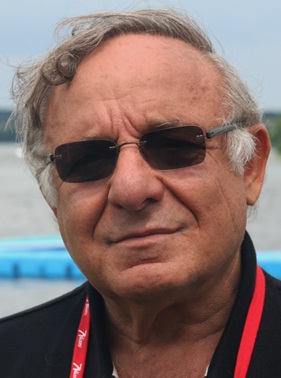
Dr. Isaac Adezis.
Let me start with the ‘bottom line’, with my conclusion: they are demonstrating in the wrong place against the wrong people.
Now, let me explain.
Most of the demonstrations have placards about greed, about how Wall Street companies and executives earn obscene sums of money while the country is truly suffering. American companies are awash in record profits while unemployment is at record highs. Something is genuinely not right… Right?
Yes, right, but what they are demonstrating against are the manifestations to the problem not the cause of the problem.
What is the cause?
The profit motive. That is where the problem is.
Imagine what would happen if medical doctors turn profit oriented and measure their success by profits. And medical schools taught them that profit should be their goal by which they should measure their success.
Many of us will die from unnecessary surgeries, go bankrupt from non ending medical bills or insurance premiums, and productivity of labor will go way, way down because we will be hospitalized to no end.
What does medical training say?
“Do no harm!!”
“The patient is first!”
Doctors need to get paid, but it is not the pay that SHOULD drive their decision-making. I emphasized the word “ should” because in reality some doctors do succumb to the pressures of society to measure themselves by how much they earn and have compromised their professional judgment for the sake of making money. But they are the anomaly, not the norm, while in business, IT IS the declared, legitimate, sought after norm.
And what happens than?
Look how the pharmaceutical companies behave. To get repetitive, sustainable, profits, they supposedly develop new drugs. In reality, they are doing continuous improvement to old drugs and calling them new drugs to justify their R and D expense. (I have inside information.)
Are they really patient oriented or see the patients as a source of opportunities to make money. So they discover diseases that need treatment although the treatment and even the disease, there is doubt about their severity or dysfunctionality. .
Pharmaceutical companies are making tons of money while the country is going bankrupt as health care expenses are getting out of hand.
But what I am describing here is happening not only with the health care industry. It is happening with the whole business world. Each CEO is trying to make better earnings per share especially if the company is in the stock market. If his earnings per share are below the ones of competition and repetitively so, the CEO will be replaced.
There is no shame in focusing on profits. That is what business schools teach, and schools of economics justify with endless logical mathematical proofs.
To increase profits and have them grow sustainably, companies invent goods and services, whose social justification is marginal at best and penetrate new markets, where the benefits to the new market are questionable. We know for instance that cola drinks are full with sugar. Causing obesity. Causing heart attacks. Still we export them worldwide. And fried food also causes obesity and high blood pressure and a myriad of other diseases. Los Angeles local government has forbidden opening of fast food outlets in poor parts of the city. Poor people use fast food as their nourishment; they have no money and do not know better. But, we nevertheless export those same products to any poor country we can and destroy their health. And make money.
The whole system is profit oriented to the detriment of the market it serves.
I am not pointing a finger at the CEOs, by the way. Individually, they are conscious, spiritual people, or at least some of them. It is the system that causes them to behave a certain way. It is the system of rewards and punishment. “When you join a circle dance you have to dance like the rest “ is a Balkan expression.
What to do?
Business leaders should be professionals. Like MDs. Put the client first. “Do no harm!”
Instead of profit being the goal, it should be the limitation. In other words: “serve the clients — profitably !!!” should be the goal, rather than “Increase profitability and let the customers beware”…”they are grown up”…”information is available”….”free choice etc”…” I consider all these statements fig leaves to cover greed.
So, where should the demonstrators demonstrate? In front of the business schools and schools of economics where they indoctrinate business leaders, where the legitimization of profits is done.
The profit motive is deeply ingrained in our education. One reason for that is that profit provides a goal that can be quantified.
Quantification of goals enables professors to develop beautiful mathematical models and theories which they would not have been able to do otherwise. Client orientation, professional treatment of clients, and not doing harm, are not easily quantifiable. With the profit measurement, big corporations, especially the multi nationals, can be controlled: There is a measurable criteria of success or failure. With non-quantifiable criteria like professionalism, and client true care of, such controls could not be as accurate.
We have developed a whole ideology of business which would rather be precisely wrong than approximately right.
MY hero is not Welsh of General Electric. “The burn and slice “ executive who made ROI the idol to worship.
My hero is Steve Jobs who loved his clients, his application developers, his computer developments. And the customers loved him in return. So did the developers. So did the employees; people fought to get hired by Apple.
Do you really think that Steve Jobs could have developed Apple into the most valuable company on earth if he was just profit motivated?
Profit was the result of the love he has had for everything he has done.
Here is a quote from him: “Remembering that you are going to die is the best way I know to avoid the trap of thinking you have something to lose. You are already naked. There is no reason not to follow your heart.” Steve Jobs
Did he say anything about making as much money as you can before dying?
He followed the heart and our business education has nothing about following the heart. All courses are on how to make more and better MONEY. I know I taught in several business schools.
When a person knows he is facing certain death, the real truth what life is about comes out. And it is love. Love for whatever we do.
I, and I bet you too, will go to a doctor that loves his profession more than he loves his wallet. And I want to train, develop managers, executives who love more what they do for their customers profitably, than how much profit they have made.
Conclusion: The demonstrators are demonstrating the leaves of the tree, not its roots. Because they apparently do not see the roots. They demonstrate what they see.
I wish they would demonstrate in front of Harvard Business School, the Kremlin of business education, the school who led and still leads those who train those who are being demonstrated against.
Demonstrate in front of the Chicago School of Economics where Milton Friedman got a Nobel Prize for defending religiously that the purpose of business is business.
They are the culprits. We are the victims.
Sincerely,
Dr. Ichak Kalderon Adizes
This entry was posted on Friday, October 28th, 2011 at 11:39 am and is filed under English, Policy Issues. You can follow any responses to this entry through theRSS 2.0 feed. You can leave a response, or trackback from your own site.
- Bookmark :
- Digg
- del.icio.us
- Stumbleupon
- Redit it
World economy collapse explained in 3 minutes
- Posted by - (0) Comment
"If the American people ever allow private banks to control the issue of their currency, first by inflation, then by deflation, the banks and corporations that will grow up around them will deprive the people of all property until their children wake up homeless on the continent their Fathers conquered...
I believe that banking institutions are more dangerous to our liberties than standing armies... The issuing power should be taken from the banks and restored to the people, to whom it properly belongs."
- Thomas Jefferson (1743-1826).
- Bookmark :
- Digg
- del.icio.us
- Stumbleupon
- Redit it
- Posted by - (0) Comment
36 REASONS WHY IT’S SUCH AN EXCELLENT IDEA
TO VISIT LITHUANIA THIS AUTUMN AND WINTER
Good reasons for all seasons
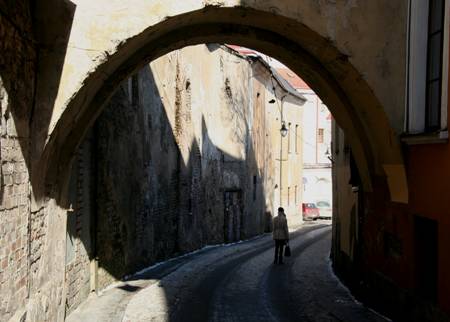
You can and should visit Lithuania for a lot of reasons this autumn and winter – as you can see from our below survey. Common for all the 36 ideas mentioned, is that here you get top quality and tons of experience – for half the price – if to compare with USA and most West-European countries.
To read more, go to Section 23 – TRAVEL LITHUANIA
- Bookmark :
- Digg
- del.icio.us
- Stumbleupon
- Redit it
- Posted by - (0) Comment
36 REASONS WHY IT’S SUCH AN EXCELLENT IDEA
TO VISIT LITHUANIA THIS AUTUMN AND WINTER
Good reasons for all seasons

You can and should visit Lithuania for a lot of reasons this autumn and winter – as you can see from our below survey. Common for all the 36 ideas mentioned, is that here you get top quality and tons of experience – for half the price – if to compare with USA and most West-European countries.
We do, however, recommend you to plan your trip thoroughly, well in advance.
If you wish, we can help you to put together the most perfect programme for your trip, and give you some hints about how to get here, where to stay, with whom to deal and much more...
If this would be of interest for you, please write us at editor@VilNews.com
|
A – NATURALLY Nature has been generous to Lithuania. There are no mountains or big forests, the country's beauty lies in the diversity of its landscape. This is a place of rolling hills and gentle plains; of quietly flowing rivers and of lakes reflecting the blueness of the sky. |
|||||||
|
|
|
|
|||||
|
B – MUST SEES Vilnius Old Town has a stunning array of Gothic, Renaissance and Baroque architecture, a truly amazing place to visit and experience. It’s also in Vilnius centre that you find the KGB Museum, a reminder of the gruesome Soviet oppression this country was forced to live with for 50 sad years. But only 30 km from the city, there is a strong medieval symbol of the 500 years of glory, when Lithuania was Europe’s largest country. |
|||||||
|
|
|
|
|||||
|
|
|
|
|||||
|
C – CULTURE Far too few people outside Lithuania know what a tremendous treasure of culture this country represents! Today Lithuanian art is not only flourishing at home but is also gaining recognition internationally. Though not every poster tells that a nightingale soprano, a graceful ballerina, or a divine cello player comes from Lithuania, the probability that you have just enjoyed a concert of a Lithuanian artist is great, being it in New York, London, Berlin, or Vilnius. |
|||||||
|
|
|
|
|||||
|
D – HEALTH & WELLBEING Many people come to Lithuania for quality health care of various kinds. Medical quality here is very high and prices for services very low... In addition the country has a number of extremely good spa and tourism resorts where visitors can undergo all kinds of treatments or simply relax and charge their batteries... |
|||||||
|
|
|
|
|||||
|
E – SPORT, OUTDOOR LIFE & PHYSICAL ACTIVITIES This year’s EuroBasket tournament took place in Lithuania (Aug-Sep). But Lithuania has also numerous other sport activities and events to offer, all year around. The Lithuanian lakes and rivers are full of fish, and the forests full of wild animals including deer, wild bears, beavers, elks and many others. One is allowed to hunt elks, wild bears, wolves, foxes, hares and birds, such as geese, ducks and woodcocks. |
|||||||
|
|
|
|
|||||
|
|
|
|
|||||
|
F - JUST FOR FUN Wondering what to do in Lithuania? We can help you stay busy, don’t worry... We can tell you about the most popular tourist attractions, beaches, outdoor/indoor activities, nightlife and much, much more... |
|||||||
|
|
|
|
|||||
|
G – WINING & DINING The natural and healthy character of its dishes is what makes Lithuanian cuisine unique. There are all kinds of restaurants in absolutely all corners of the country – international and local dining and wining from Nida to Druskininkai, from coast to inland, not to forget the big cities... |
|||||||
|
|
|
|
|||||
|
H – HOTELS, CONFERENCES Lithuanian hotels offer a large variety of accommodation options. Though the country has undergone vast economic development, it also retains ties with its nature loving, glorious pagan, countryside past. Did we mention conferences? Try Lithuania – fantastic quality, half the price! |
|||||||
|
|
|
|
|||||
|
I – TOWNS & CITIES Lithuania’s cities started to form in the 13th-14th century together with the Grand Duchy of Lithuania. The first city to receive city rights was Klaipėda (1257). Most of the cities are old, established before the 18th century. There are only 19 cities with population of more than 20.000. Cities are quite evenly spread out through the territory of Lithuania. This forms a good network to support economic development throughout the country. The distance from the capital Vilnius to the port city Klaipėda is only 300 km, with excellent 4-lane motorway. |
|||||||
|
|
|
|
|||||
|
|
|
|
|||||
- Bookmark :
- Digg
- del.icio.us
- Stumbleupon
- Redit it
- Posted by - (0) Comment
America's important
role for Lithuania

The ‘Lithuanian’ senator, Richard ‘Dick’ Durbin (67) with President Barack Obama.
Durbin is the senior United States Senator from Illinois and the Senate Majority Whip, the second highest position in the Democratic Party leadership in the Senate. Durbin was born in Illinois to an Irish-American father, William Durbin, and a Lithuanian-born mother, Ann Kutkin (Lithuanian: Ona Kutkaitė). Durbin has over many years done a truly great job not only for America but also for his motherland, Lithuania!
Text: Aage Myhre, Editor-in-Chief
aage.myhre@VilNews.com
During a visit to the U.S. some years ago I spoke with immigrants from various countries who now live in the United States. All with one thing in common; that they had abandoned their homelands. I met exiled Cubans. I saw Iranians who fled to USA after their Shah, Mohammad Reza Shah Pahlavi, was overthrown from the Persian Peacock Throne in 1979. I talked to many Eastern Europeans who escaped Stalin's atrocities during and after World War II. I talked to Jews who were born in the U.S., but still feeling and having very close ties to Israel.
It strikes me that the U.S. has done much more for exiled nationalities than what our Western European nations have done.
It was probably not without reason that the majority of Eastern Europeans who managed to flee westwards towards the end of World War II preferred the U.S. over Western Europe. For in truth our Western European support to our eastern brothers and sisters was rather half-hearted during the post-war years.
- Bookmark :
- Digg
- del.icio.us
- Stumbleupon
- Redit it
- Posted by - (1) Comment
America's important
role for Lithuania

The ‘Lithuanian’ senator, Richard ‘Dick’ Durbin (67) with President Barack Obama.
Durbin is the senior United States Senator from Illinois and the Senate Majority Whip, the second highest position in the Democratic Party leadership in the Senate. Durbin was born in Illinois to an Irish-American father, William Durbin, and a Lithuanian-born mother, Ann Kutkin (Lithuanian: Ona Kutkaitė). Durbin has over many years done a truly great job not only for America but also for his motherland, Lithuania!
Text: Aage Myhre, Editor-in-Chief
aage.myhre@VilNews.com
During a visit to the U.S. some years ago I spoke with immigrants from various countries who now live in the United States. All with one thing in common; that they had abandoned their homelands. I met exiled Cubans. I saw Iranians who fled to USA after their Shah, Mohammad Reza Shah Pahlavi, was overthrown from the Persian Peacock Throne in 1979. I talked to many Eastern Europeans who escaped Stalin's atrocities during and after World War II. I talked to Jews who were born in the U.S., but still feeling and having very close ties to Israel.
It strikes me that the U.S. has done much more for exiled nationalities than what our Western European nations have done.
It was probably not without reason that the majority of Eastern Europeans who managed to flee westwards towards the end of World War II preferred the U.S. over Western Europe. For in truth our Western European support to our eastern brothers and sisters was rather half-hearted during the post-war years.
|
The incredibly bloody partisan war that the Balts fought against the Soviet occupiers in the years 1944-1953 was barely mentioned in Western Europe. The fact that over 100 000 people were killed, tortured and assassinated right outside our own doorsteps got shamefully little attention. Information on the countries' own language played an invaluable role. Radio signals reached behind the Iron Curtain... |
|
|
|
|
"Chicago is Lithuania's second largest city," said the young man smilingly when he welcomed me to the LWC, the Lithuanian World Center in Lemont in the outskirts of Chicago. It is an impressive centre, with a church and much more which this 'nation outside of the nation' has built. It was here from Chicago that the struggle against the Soviet occupation of the Baltic states continued nonstop from World War II until liberation finally came in 1990-1991. I hear statements like; ‘those who fled to the United States were living the good life, while those who weren’t that lucky were subjected to deportations and atrocities of the Soviet power’. What I also see is that Lithuania's leaders only very hesitantly want their countrymen and women welcomed home after the 50 painful years of cold war between east and west. Lithuania is about to lose a tremendous opportunity. But all hope is not lost. |
|
- Bookmark :
- Digg
- del.icio.us
- Stumbleupon
- Redit it
VilNews e-magazine is published in Vilnius, Lithuania. Editor-in-Chief: Mr. Aage Myhre. Inquires to the editors: editor@VilNews.com.
Code of Ethics: See Section 2 – about VilNews. VilNews is not responsible for content on external links/web pages.
HOW TO ADVERTISE IN VILNEWS.
All content is copyrighted © 2011. UAB ‘VilNews’.

 Click on the buttons to open and read each of VilNews' 18 sub-sections
Click on the buttons to open and read each of VilNews' 18 sub-sections 




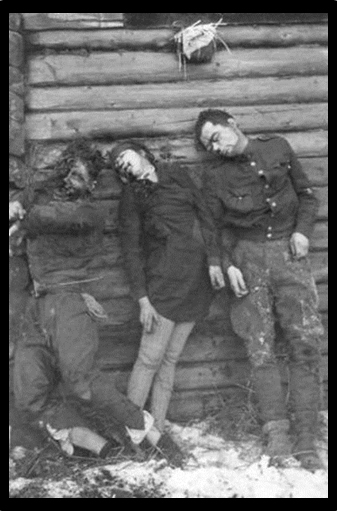




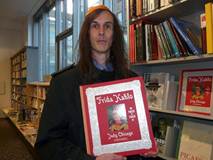
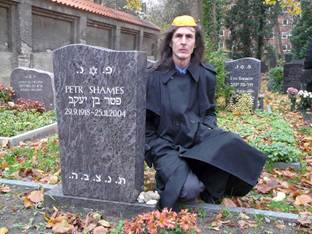



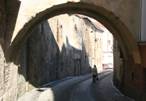
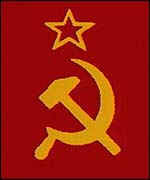





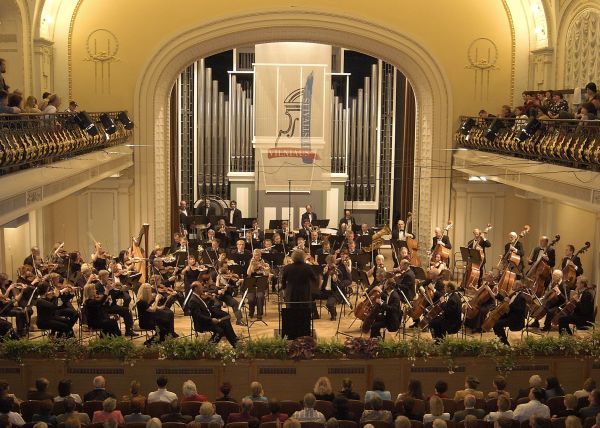

 Lithuania has become a leading medical tourism destination for people from countries around the world
Lithuania has become a leading medical tourism destination for people from countries around the world














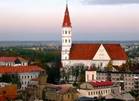


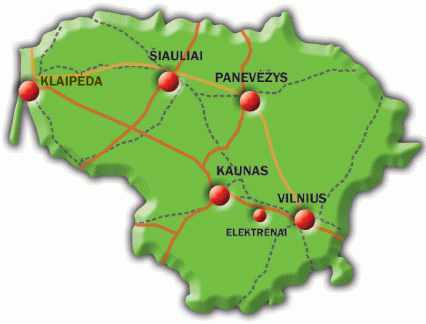

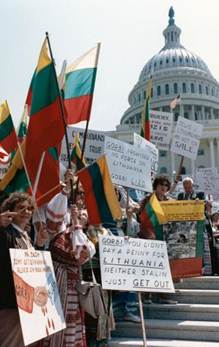









.jpg)



